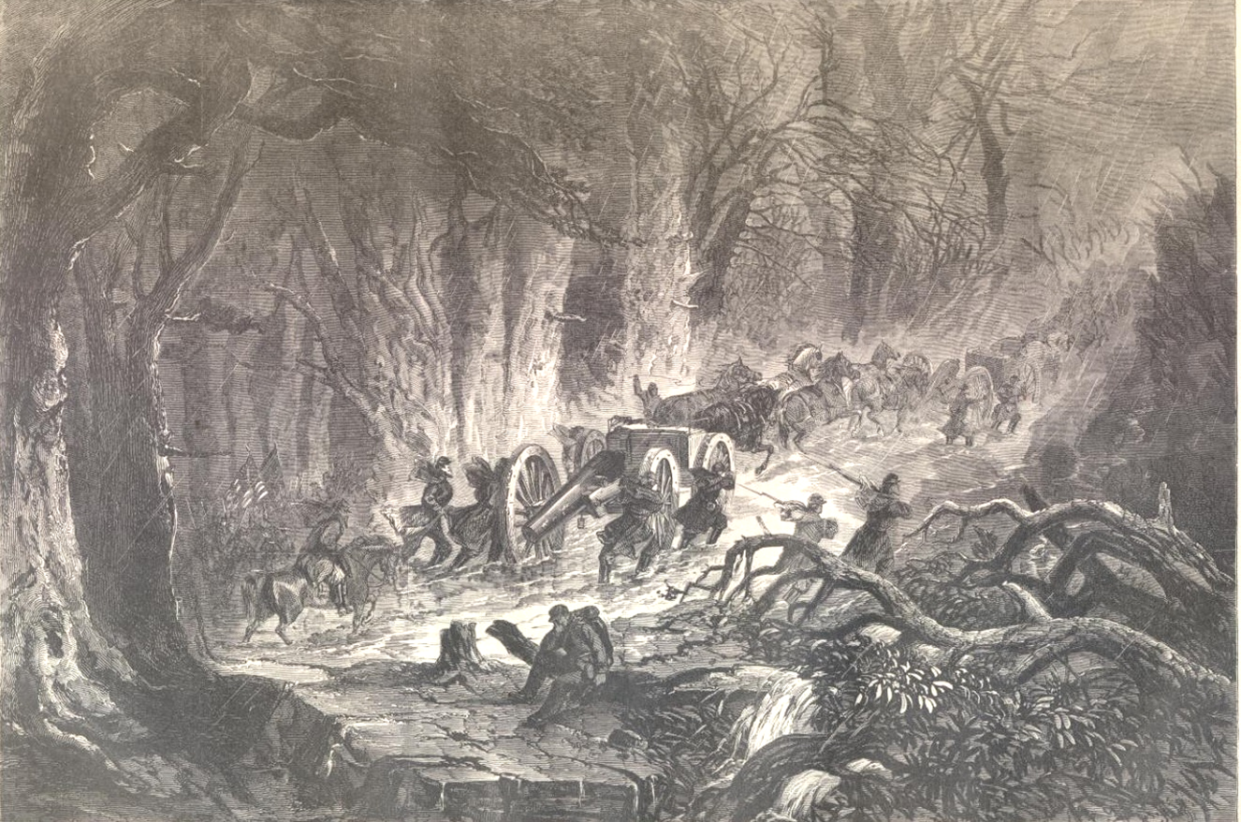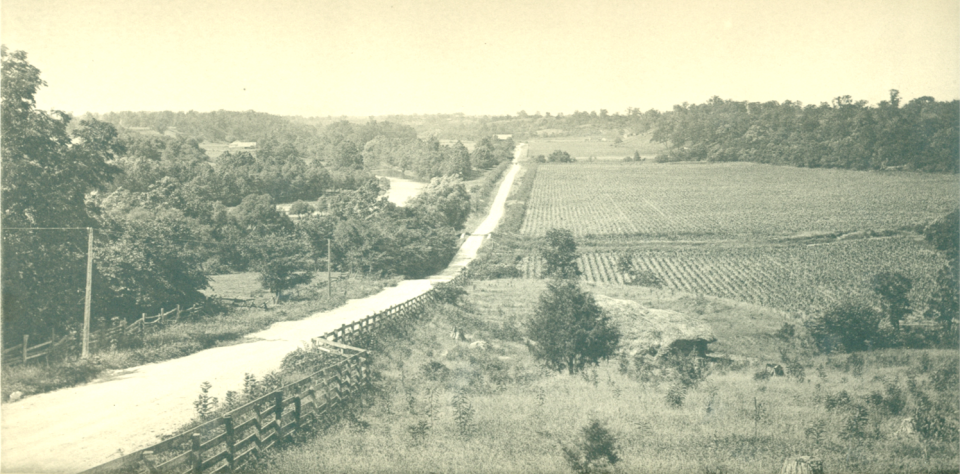Out of Our Past: Civil War officer from Wayne County fought back against charge of desertion

- Oops!Something went wrong.Please try again later.
- Oops!Something went wrong.Please try again later.
The second week of June, 1865, a Wayne County man whose loyalty was questioned and who sought to defend himself in a military court received finale judgement.
Here are the facts according to the "Directory and Soldier’s Registry of Wayne County, Indiana [1865]": Jonathan J. Wright of Richmond enlisted in service to fight in the American Civil War on Dec. 3, 1863, at Camp Wayne in Richmond; he was elected Lieutenant as part of the 124th Indiana that formed there; he was promoted Captain on March 11, 1864, and was with the regiment in its march from Nashville, Tennessee, to join General Tecumseh Sherman’s army, and continued this service through the famous Atlanta Campaign, until June 25, when while in the line of duty he became prostrated by sunstroke and was sent insensible to the hospital. Remaining there but one week, he rejoined his regiment before he had sufficiently recovered, and in bearing the fatiguing services of the field, this brought on a relapse one week later, rendering him wholly unfit.
He was sent to a field hospital; thence to Chattanooga, and from there to Nashville, from which place he obtained leave of absence by order of General Sherman for 20 days, dated July 23, 1864. When the 20 days expired, being unable to travel upon the report of a surgeon’s notice of his condition, Captain Wright was sent to the proper officers for reassignment orders, and in 18 days more started to rejoin his regiment, but upon his arrival at Louisville, Kentucky, was detained on account of the railroad to Nashville being out of repair. At this place he was detailed by authority of an order from General Sherman and placed in charge of 1,000 head of beef cattle, with horses, mules and other property sufficient to drive them to Nashville, which had become his duty, and which was an extremely hazardous undertaking. The whole country between Louisville and Nashville being infested by Confederate guerrillas, Captain Wright succeeded in taking his charge safely through despite the dangers. He found it necessary, however, to remain there two weeks to wait for the rebel leaders under Nathaniel Bedford Forrest and General Joseph Wheeler to cease their bushwhacking operations.
On the 14th of October he was ordered to start for Chattanooga with 12,000 head, arriving at the place on November 29th. Owing to the uncertain movements of General Sherman’s forces being pitted against General John Bell Hood’s armies, it was decided to hold all beef cattle designated for Sherman’s army at the post of Chattanooga. Of the 22,000 head accumulated there and to be subsisted for an indefinite period, Captain Wright was ordered to stay in the vicinity with his 2,400 head until relieved by proper authority. In discharging the duties thus imposed, it was necessary for him to purchase corn, pasturage, and any other supplies he could obtain during the time of the dangerous investment in besieging Nashville by rebel General Hood, and the Confederate’s subsequent defeat by Union General George Henry Thomas.
Because of this Captain Wright was detained until the latter part of March 1865, when he was ordered to turn over the property to the officers designated to receive it, and to prepare to rejoin his regiment. Having complied with these instructions, he reported to the Chief Commissary of Subsistence of the Department of the Cumberland who, in a turnabout mandate, ordered him to return to duty for an added few days at Nashville. On April 25th he was ordered to take 700 head of beef cattle from Nashville to Chattanooga, at which place he arrived on May 10th, turning over the property, being relieved by order of General Thomas. Captain Wright then finally went to join his regiment, supposing them at this time to be somewhere in North Carolina.
The difficulties of traveling where rebel forces were about were such that it was necessary for him to travel in stealth by a circuitous route of nearly 2,000 miles to reach Charlotte, North Carolina, where he found his regiment on the 12th of June, and to his surprise learned that negative advantage had been taken of his detention, and the loss and absence of official information of his whereabouts caused him to be considered a deserter, as a result of false representations made to the War Department, and that he had been dishonorably dismissed.

In quite a state of animated fury and dismay, Captain Wright repaired at once to Washington to obtain permission to make his defense. Upon doing so quite rightfully and zestfully with a zeal for able defense, he was immediately reinstated to his former position, and at his own request received an honorable discharge dated June 12, 1865, since the rebellion for which he had served ably and admirably despite disability, had been concluded for over two months. Captain Wright returned to Richmond forthwith, an honorable man of no little chagrin.
Contact columnist Steve Martin at stephenmonroemartin@gmail.com.
This article originally appeared on Richmond Palladium-Item: Out of Our Past: Civil War officer disputed a charge of desertion

